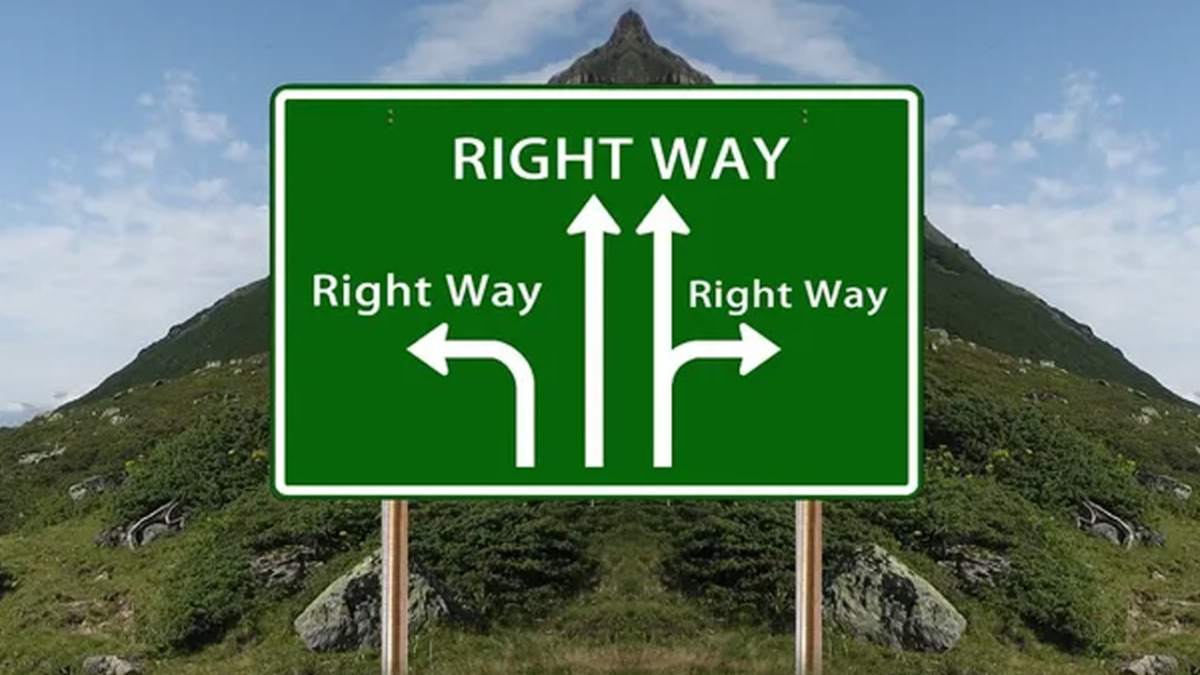I didn’t mean for that to happen. It wasn’t my intention for…
Have you or anyone you know ever utter these words? Probably. Most of us don’t actually weigh the possible outcomes when we make decisions. We only see what we want, which comes at a cost. But alas, what price?
Every choice yields positive, negative, or neutral consequences. Every choice. Oh, and a yes to one thing is a no to another. It’s just a matter of being clear about the potential results and accepting your responsibility in bringing them about. Because if you only focus on what you want or have to have, then you leave the door wide open for yourself and others to be harmed. And I wonder if you took the time to weigh the probabilities, would you make that decision anyway?
This is so true for the current global health crisis. Yes, the pandemic required an immediate and effective response from leaders. Hence the world shutdown with shelter in place (SIP), business closures, and social distancing. Many believe that these measures have reduced exposure, slowing down the rate of new infections and the number of deaths.
After about two months of the shutdown and the declining numbers, many people are still afraid of catching a virus that most will recover from, about 98% of active cases are mild and don’t require hospitalization according to worldometers.info/coronavirus. And many rightfully question the continued social closures, never mind how “essential” businesses are selected. Some governments don’t even have a concrete plan for reopening.
My question is, what about the unintended consequences of the ongoing shutdown?
Domestic Violence
Intimate Partner Violence (IPV) is a big problem. IPV includes physical violence, sexual assault, mental and emotional abuse, and stalking. And according to the CDC, current or former male partners kill nearly half of all women murdered. For the domestic violence survivors, mental health, heart, digestive, muscular, and nervous system disorders can affect them for years.
With SIP, there is no escape. Victims cannot leave home to seek shelter, despite what Nevada’s Governor says, and are more vulnerable. Isolation is a major enabler of domestic violence. Mandatory reporters—medical providers, teachers, therapists are removed with SIP because they cannot see the bruises or get a report from those abused or provide resources for help. Increasing stress, unemployment, and sudden shifts in daily routines are also contributing factors.
Something else to consider. Harvard University Medical School trauma expert, Judith Lewis Herman, found that domestic abusers use similar methods to kidnappers to control hostages and repressive regimes use to break the will of political prisoners to control their partners and children. Andrew Campbell reported that new cases in the United States involve the abusers not allowing their partners wash their hands, using the threat of contracting COVID as another means of control.
Brazil reported a 40-50% increase in reports. France reported a spike of 30%. In the UK, domestic murders of women and children have doubled. In the United States, Houston police received 300 more domestic violence calls, 517 more in Charlotte, and nearly 200 more in Phoenix. Other U.S. cities that reported increased domestic violence calls include Boston, Milwaukee, Seattle, San Antonio, Salt Lake City, Utah County, Fresno County, Montgomery County, East Baton Rouge Parish, Buffalo, Sparks, Portland, Nassau County, Cherokee County, and Charleston, South Carolina.
Child Abuse
Child abuse is unfortunately tied to Intimate Partner Violence. About 30-60% of children who live in IPV homes are abused and/or neglected themselves, according to preventchildabuse.org. DoSomething.org reported that 68% of the abuse is perpetrated by family members and more than 70% of the children who die as a result of abuse and neglect are younger than 3 years of age.
Not only do these children experience violence first-hand, they may also witness one parent, usually mom, be victimized. The long term effects of the IPV environment involves psychological, cognitive, social, emotional, and behavioral issues. And many of those abused as children are linked with future criminal activity.
Authorities are concerned that the usual modes of reports to the police and child protective services are disrupted. Because schools and social outlets are shutdown, children are not seen by teachers, medical providers, other mandatory reporters, or even extended family. The apprehensive expectation is that when society reopens the number of new reports will be exponentially higher than the norm.
Suicide
There was a loneliness problem in the United States before the pandemic. In the age of massive technological connection via social media, more and more people experience disconnection and are lonely. That issue has worsened because of the forced social isolation from the national shutdown.
“We’ve seen several suicides that we can directly attribute to the isolation from not being able to get out and move about and do the things that they normally do. They get depressed,”
–Bobby Parks Evans, Jr., Greenville, SC County Coroner.
Vikram Thakura and Anu Jain wrote, “The looming economic crisis may create panic, mass unemployment, poverty and homelessness will possibly surge the suicide risk or drive an increase in the attempt to suicide rates in such patients. US already claimed a vast increase in unemployment (4.6 million) during coronavirus emergency and speculated that lockdown will cause more deaths than COVID-19 itself amid the recession. This uncertainty of time for isolation, not only demoralize but also make people feel worthless, hopeless about present and future.”
Increased domestic violence, child abuse, and suicide are just a few of the unintended consequences of the shutdown. Lack of access to health care also comes to mind. Leaders must take them all into consideration. Reopening society will require a conscientious balancing act, weighted by keeping those most vulnerable safe from this viral scourge while allowing the healthiest to live and help those in need.
Glen Alex, LCSW, Author of Living In Total Health, Health Skills Coach, Speaker
Need assistance coping with boundaries, stress, relationships, or recovering from a setback?
Book your complimentary Discovery Call now: www.glenalex.as.me/schedule.php


